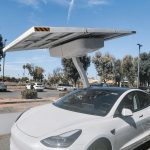With key decisions approaching at Tesla’s 2025 Annual Meeting, debate has intensified over shareholder guidance provided by major proxy advisory firms. Tesla’s leadership has publicly voiced concerns about external recommendations that question both executive compensation and the effectiveness of the company’s board. Against this backdrop, shareholders face a pivotal choice impacting the direction of Tesla, especially regarding CEO Elon Musk’s incentive plan. Many investors are closely monitoring developments, as the outcome could influence not only Tesla’s corporate future but broader standards for governance in high-growth technology sectors.
Discussions about Tesla’s executive pay structure have surfaced repeatedly in recent years, often focusing on performance-based benchmarks and the outsized scale of compensation packages. Although previous shareholder meetings resulted in approval for similar such awards to Elon Musk, proxy advisory firms have maintained a consistent stance against these measures, arguing for more standardized approaches to executive remuneration and board oversight. Critics have often raised concerns about possible corporate governance risks, while supporters have highlighted Tesla’s rapid expansion. This ongoing clash of perspectives reflects deeper questions over how to assess unique business models such as Tesla’s in comparative governance frameworks.
Why Is Tesla Challenging ISS and Glass Lewis?
Tesla has disputed the recommendations from Institutional Shareholder Services (ISS) and Glass Lewis, asserting that these firms rely on uniform processes that do not take into consideration Tesla’s particular trajectory. Robyn Denholm, Tesla’s Chair, commented that past opposition from these advisors did not hinder the company’s expansion after the 2018 CEO Performance Award was granted. She observed the company’s significant market capitalization growth since that period, raising doubts over the appropriateness of a one-size-fits-all policy.
“Our shareholders have ignored their recommendations, and it’s a good thing they did,”
Denholm stated, referring to the advisory firms’ earlier objections to Tesla’s proposed executive pay arrangements.
What Arguments Does Tesla Present About Board and Compensation?
The letter from Denholm highlighted the contributions of directors Ira Ehrenpreis and Kathleen Wilson-Thompson, noting their roles in shaping strategies around governance and compensation. She described their work as essential to keeping Tesla competitive, especially as the company recruits talent in fields like artificial intelligence and robotics. Tesla’s board maintains that the 2025 CEO Performance Award strictly conditions any payout to Musk on achieving specific market and operational targets, positioning it as a means to align his incentives with shareholder interests.
Are There Broader Implications for Shareholder Voting?
Tesla underscored a distinction between actual company investors and external advisory firms, emphasizing that only financial stakeholders should determine the company’s future. Denholm issued a call urging shareholders to dismiss what she described as “robotic voting” by proxy firms. She suggested that compliance with outside recommendations might dilute Tesla’s ability to innovate and grow, warning that following ISS and Glass Lewis could risk turning Tesla into an ordinary automotive company.
“If you prefer that Tesla turn into just another car company mired in the ways of the past, then you should follow ISS and Glass Lewis,”
Denholm wrote.
Shareholders now must weigh not only the immediate details of executive compensation, but also the role of advisory firms in shaping company decisions through standardized methodologies. Investors who hold Tesla shares will determine whether the board’s arguments about the distinctiveness of Tesla’s model outweigh proxy advisors’ recommendations. Examining this voting process can provide a valuable reference for governance in similarly innovative public companies. For those considering how best to engage with fast-moving, founder-led businesses, understanding the balancing act between structured oversight and company-specific strategies remains key. Observing the results of this high-profile proxy vote could inform choices in their own investment or governance practices.
- Tesla challenges ISS and Glass Lewis’s latest voting recommendations to shareholders.
- Robyn Denholm argues proxy advisors use rigid methods unsuited to Tesla’s structure.
- Shareholders are set to vote on Elon Musk’s compensation and board reelections.










